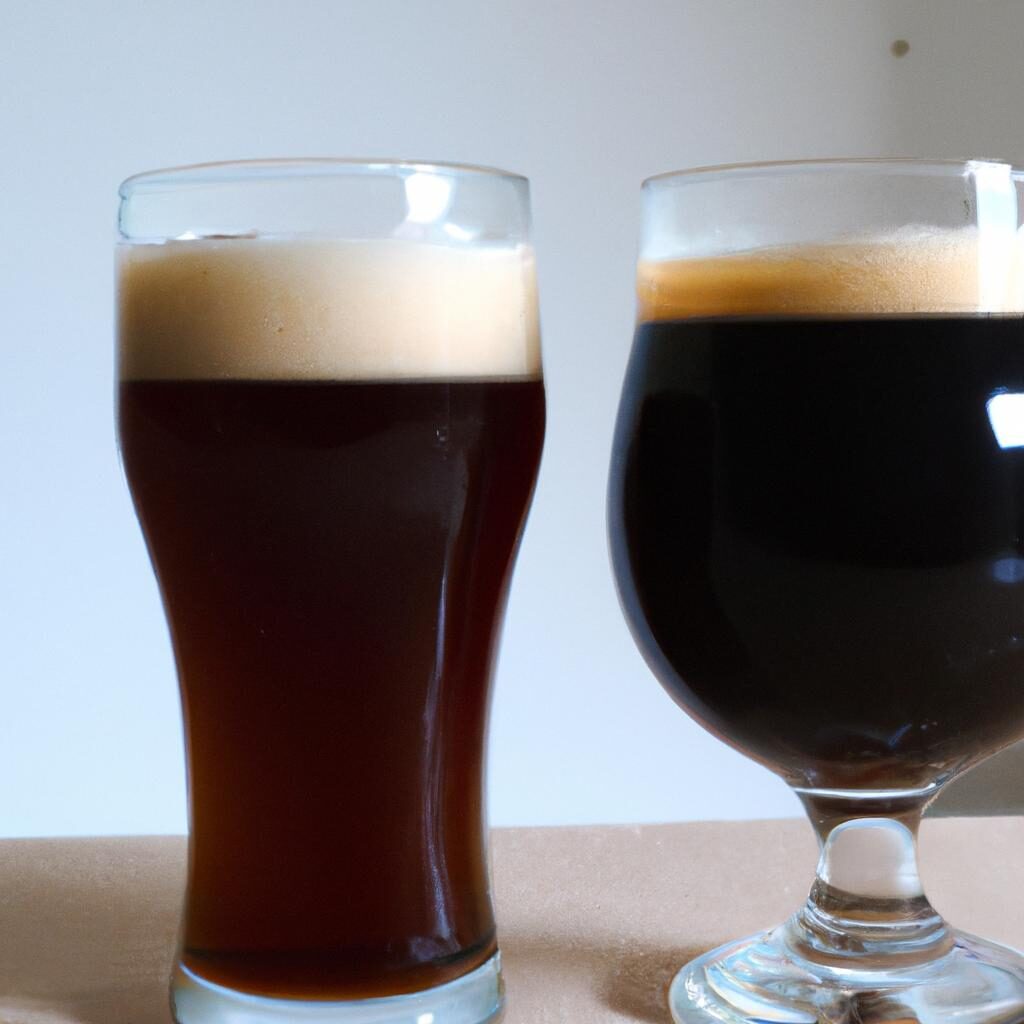Are all beers made with wheat?
The short answer to this question is no, not all beers are made with wheat. In fact, there are various types of grains that can be used as the base for brewing beer, with barley being the most common.
However, wheat beers are a popular style of beer and offer unique flavors and characteristics that make them a favorite among many beer enthusiasts. In this blog post, we will explore the world of wheat beers, the different types of grains used in brewing, and the various styles of beer that can be created without using wheat.
We will also discuss some of the reasons why some people choose to brew without wheat and offer some tips for those who are interested in brewing their own wheat-free beers.
A Brief History of Wheat Beers
Origins of Wheat Beers
Wheat beers have a long and storied history, dating back thousands of years. The earliest known evidence of wheat beer comes from ancient Mesopotamia, where it was believed to have been brewed as early as 4,000 BCE.
The popularity of wheat beers grew over time and eventually spread to Europe, where it became a staple in countries like Germany and Belgium.
The Rise of Wheat Beers in Europe
Wheat beers have been a popular choice in Europe for centuries, with Germany and Belgium leading the way in terms of production and consumption.
In Germany, wheat beers (also known as Weizenbier or Weissbier) are characterized by their high wheat content (typically around 50% of the grain bill), top-fermenting yeast, and phenolic flavors reminiscent of banana and clove.

In Belgium, wheat beers (known as Witbier) are brewed with a combination of wheat and barley, as well as spices like coriander and orange peel. These beers are typically lighter in body and have a refreshing, citrusy character that makes them perfect for enjoying on a warm day.
Types of Grains Used in Brewing
While wheat is a popular choice for brewing certain styles of beer, there are many other types of grains that can be used as the base for brewing. Some of the most commonly used grains include:
Barley
Barley is the most widely used grain in brewing and is the backbone of the majority of beer styles. Barley is prized for its high starch content, which can be converted into fermentable sugars during the brewing process. The sugars are then consumed by yeast, which produces alcohol and carbon dioxide.
Rye
Rye is another grain that can be used in brewing, although it is less common than barley. Rye imparts a distinct, spicy flavor to beer and is often used in small amounts to add complexity to a beer’s flavor profile. Rye beers are typically brewed with a combination of rye and barley malt.
Oats
Oats are sometimes used in brewing to add body and creaminess to a beer, as well as a subtle, nutty flavor. Oatmeal stouts are a popular style of beer that showcases the unique characteristics that oats can bring to a brew.
Beer Styles Without Wheat
While wheat beers are a popular and distinct style of beer, there are countless other styles that do not use wheat as a primary ingredient. Some examples of these styles include:
Pale Ales and IPAs
Pale ales and IPAs (India Pale Ales) are brewed primarily with barley malt and are characterized by their hop-forward flavors and aromas.
These beers showcase the diverse range of flavors that hops can impart, from citrus and pine to tropical fruit and floral notes.
Stouts and Porters
Stouts and porters are dark, rich beers that are brewed with roasted barley malts, which gives them their characteristic dark color and flavors of chocolate, coffee, and roasted malt.

While some stouts and porters may contain a small amount of wheat for added body and mouthfeel, wheat is not a primary ingredient in these styles.
Lagers
Lagers are a broad category of beers that are fermented with bottom-fermenting yeast at cooler temperatures, resulting in clean, crisp flavors and a smooth finish. Most lagers are brewed with barley malt and do not contain wheat.
Reasons to Brew Without Wheat
There are several reasons why a brewer might choose to brew a beer without wheat, including:
Allergies and Sensitivities
Some individuals have allergies or sensitivities to wheat, which can cause discomfort or adverse reactions when consuming wheat-based products, including beer. Brewing without wheat allows these individuals to enjoy beer without experiencing negative side effects.
Celiac Disease
Celiac disease is an autoimmune disorder that causes the body to react negatively to gluten, a protein found in wheat, barley, and rye. For individuals with celiac disease, consuming gluten can cause serious health problems. Brewing beer without wheat (and using gluten-free grains like sorghum or rice) can provide a safe and enjoyable option for those with celiac disease.
Unique Flavors and Characteristics
Using alternative grains in brewing can impart unique flavors and characteristics that are not found in traditional wheat-based beers. Experimenting with different grains can lead to the discovery of new and exciting beer styles and flavor profiles.
Tips for Brewing Wheat-Free Beers
If you’re interested in brewing your own wheat-free beers, here are some tips to help you get started:
Choose the Right Grains
As discussed earlier, there are several alternative grains that can be used in brewing, such as barley, rye, and oats. Research the unique characteristics that each grain can bring to your beer and choose the one that best complements the style you are aiming for.
Use Gluten-Free Grains if Necessary
If you are brewing for someone with celiac disease or a gluten sensitivity, be sure to use gluten-free grains like sorghum, rice, or gluten-free oats. Additionally, consider using gluten-free brewing ingredients like gluten-free yeast and clarifiers.
Experiment with Recipes
Don’t be afraid to experiment with different recipes and ingredients when brewing wheat-free beers. This can help you discover new and exciting flavor combinations and create a truly unique beer.
Conclusion
In conclusion, not all beers are made with wheat. There are various grains that can be used in brewing, and many beer styles do not use wheat as a primary ingredient.
Furthermore, there are numerous reasons why someone might choose to brew without wheat, such as allergies, celiac disease, or a desire to create unique flavors and characteristics.
If you’re interested in brewing your own wheat-free beers, be sure to choose the right grains for your desired style, use gluten-free ingredients if necessary, and don’t be afraid to experiment with new recipes and techniques. Happy brewing!
FAQs
What beer has the least wheat?
Beers that are made with only malted barley, hops, water, and yeast typically have the least amount of wheat. Examples of these styles include pilsners, lagers, and pale ales.
Are all beers made with wheat?
No, not all beers are made with wheat. Many beers are made with barley, while others may use rye, oats, or other grains. Some beers may also use a combination of different grains.
Can you get wheat free beer?
Yes, there are several types of beer that are made without wheat and are considered gluten-free, such as beer made with sorghum, rice, or corn. However, it is important to note that not all gluten-free beers are wheat-free, so it is important to check the ingredients before consuming.
What beer does not contain wheat?
There are various types of beer that do not contain wheat, such as beers made with barley, rye, corn, or sorghum.
Do all beers have wheat?
No, not all beers have wheat. Some beers are brewed with wheat as an ingredient, but many others are brewed using other grains such as barley, rye, or corn.
What beers are not made from wheat?
There are many beers that are not made from wheat, including those made from barley, rye, corn, rice, and other grains.




